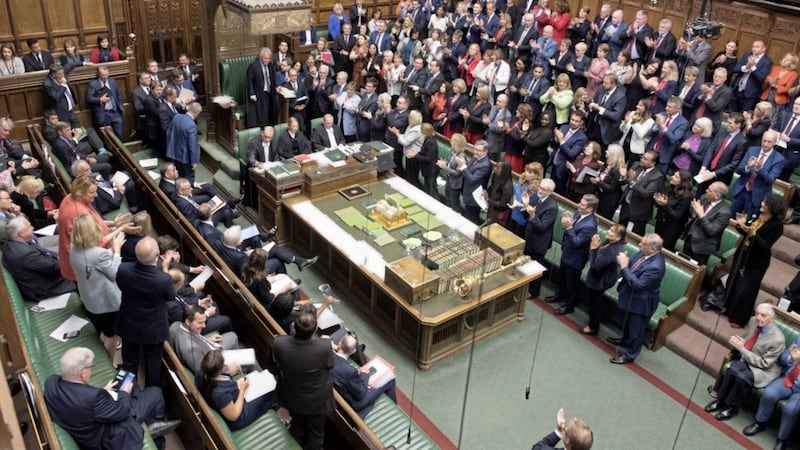It is eight years now since I paid a first visit to Canterbury Cathedral but I can still feel the chill from standing at the spot where Thomas à Becket was murdered by associates of King Henry II.
The Archbishop had been getting on the nerves of the monarch, who apparently expressed his frustration with the words: “Will no one rid me of this turbulent priest?” Four of his knights took this as an order and, wielding their swords, brought the hapless cleric’s life to an end.
That remark attributed to the king in 1170 comes to mind in the current political context. Like many others, I find myself asking the question: “Will no one rid me of this turbulent Brexit?” It just goes on and on, leaving us all in a state of exhaustion. What will Boris Johnson do next? Where does Brussels stand? What does Dublin think? How will Jeremy Corbyn react?
We are beset by a new politico-psychological condition: Brexit Burnout. You can’t help wondering if Queen Elizabeth is among those afflicted, although she would of course never be heard musing in front of her security people: “Will no one rid me of this bothersome Boris?”
Even the indefatigable Stephen Nolan has been complaining and he recently declared on Radio Ulster: “It’s doing my head in: morning, noon and night, Brexit! I’m dreaming about the bloody thing!” If the presenter of ‘The Biggest Show in the Country’ finds Brexit so hard to take, what hope is there for the rest of us? Indeed, this newspaper recently carried a Press Association report of a doctor who had a patient suffering from “hallucinations and delusions” in the aftermath of the Brexit referendum.
Whatever their deficiencies, the proposals from the prime minister in his letter to European Commission President Jean-Claude Juncker last week were in some respects more conciliatory than expected. A statement from the commission said the president “acknowledged the positive advances”, although there were “still some problematic points that will need further work”.
Taoiseach Leo Varadkar spoke with Boris Johnson by phone and, in a statement afterwards, said he had told the prime minister that “the proposals do not fully meet the agreed objectives of the backstop” (i.e., a guaranteed frictionless border.) The use of the word “fully” was an interesting qualification.
The Democratic Unionist Party, meanwhile, said that the Johnson proposals “demonstrate commitment to working with our neighbours in the Republic of Ireland in a spirit of mutual co-operation whilst respecting the integrity of Northern Ireland’s economic and constitutional position within the United Kingdom.”
This was despite the proposal for a regulatory border down the Irish Sea which, as The Nolan Show reminded us, the DUP previously opposed. The concept of the ‘Stormont Lock’ whereby the petition of concern at the Assembly could be used to exercise a veto on any regulatory divergence between Northern Ireland and the rest of the United Kingdom has aroused considerable controversy. The taoiseach said on a visit to Stockholm to meet his Swedish counterpart that it was “the kind of thing that we need to explore with our British friends”. Observers have pointed out that an unfortunate consequence of this proposal is that it could delay the return of the Assembly even further.
Okay, I know you probably need to have a lie-down now: I certainly do. With regard to Canterbury Cathedral, a very distinguished person paid a visit there in 1982. I refer to His Holiness Pope John Paul II who, three years further back again, issued a strong appeal at Drogheda for an end to the Troubles, when he said: “On my knees I beg you to turn away from the path of violence and to return to the ways of peace.”
Perhaps if the Polish Pope were still around, he would plead with us: “On my knees I beg you to get Brexit sorted and return to at least a semblance of sanity.” A lot of us would feel impelled to kiss the ground, as he did in September 1979.
At the same time it would be good if the late Ian Paisley senior could be brought back to deliver a similar message to “the other side of the house”, although perhaps not at the same time, given the way he confronted the Pontiff in the European Parliament on one occasion.
Ddebre1@aol.com








